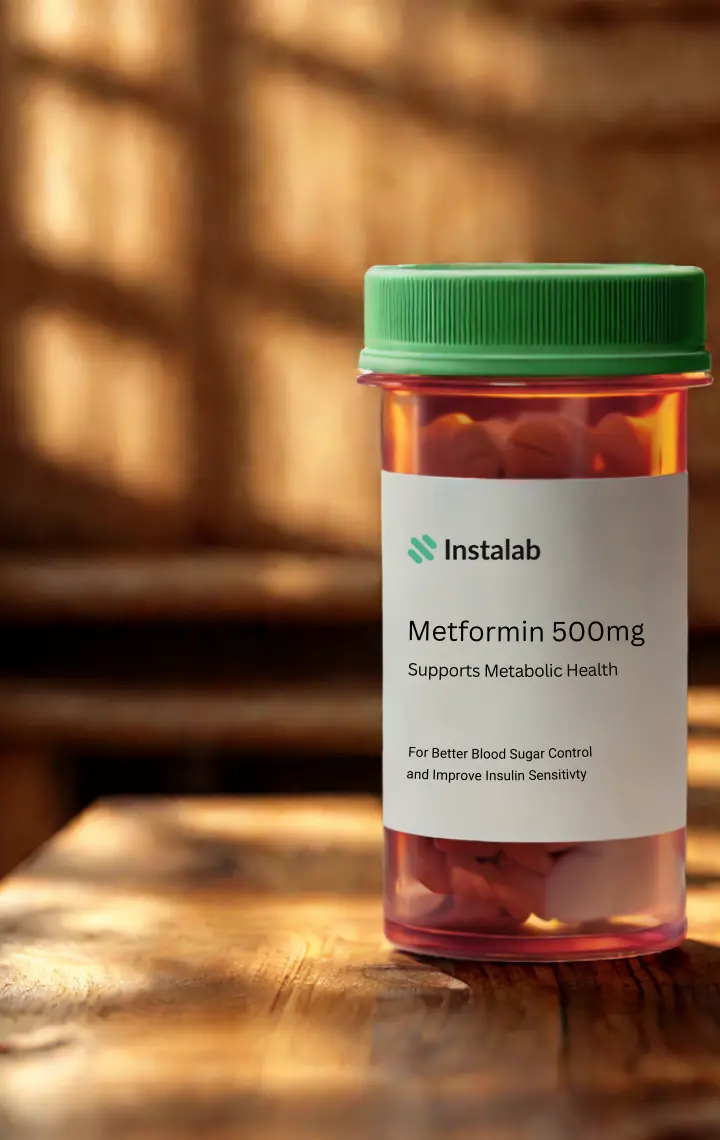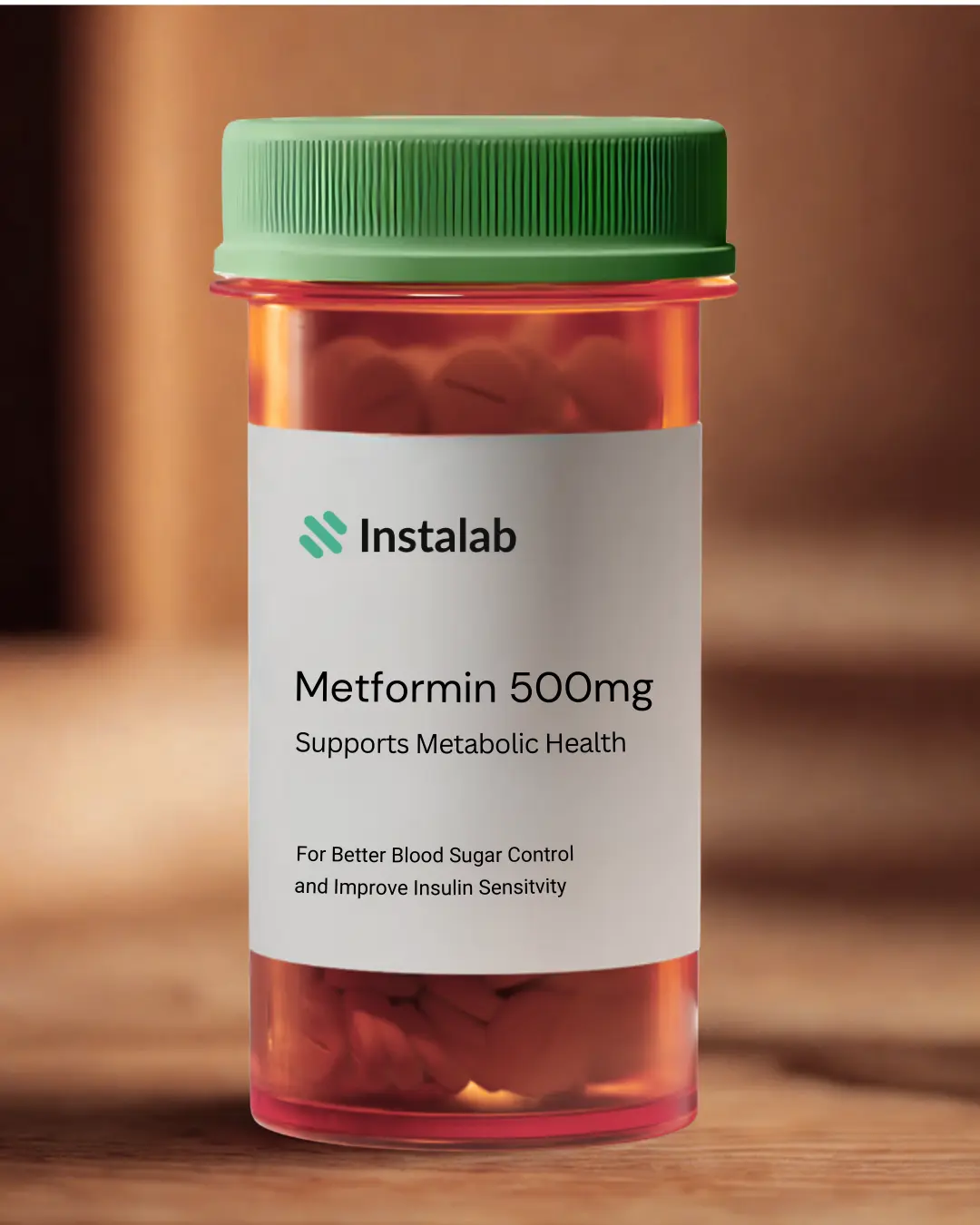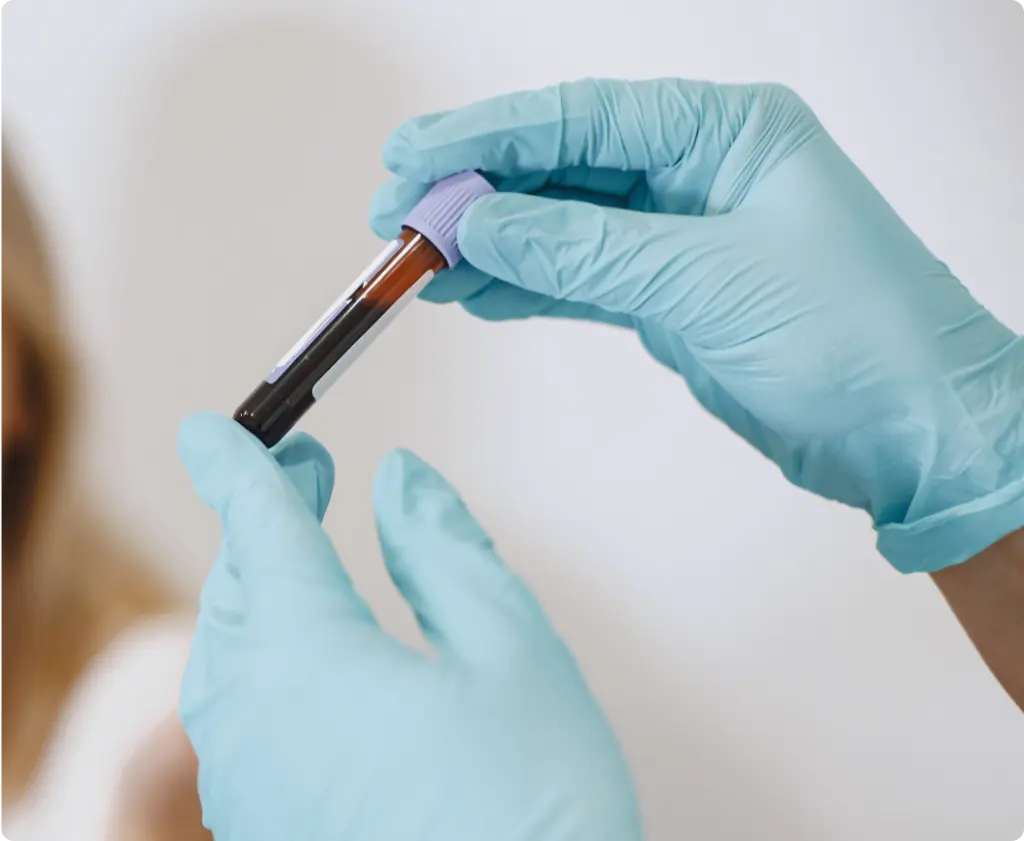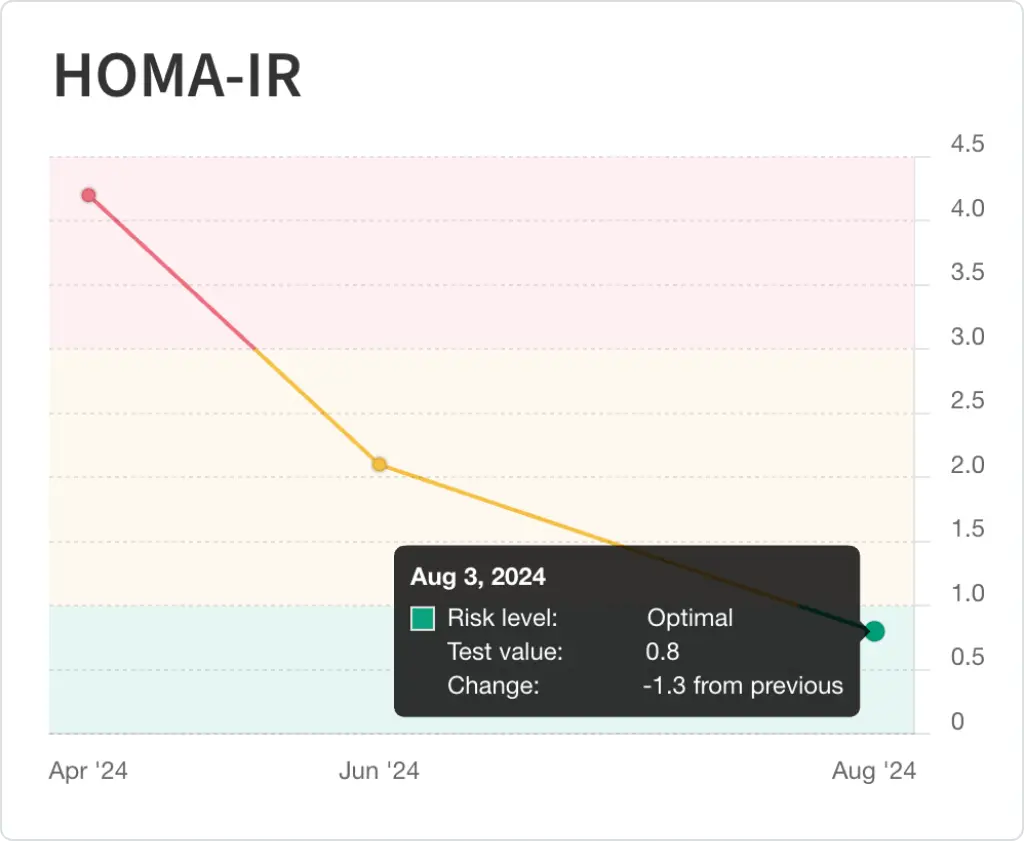

A proven, prevention-first tool to improve insulin sensitivity, lower blood sugar, and support healthy weight without causing crashes.
Metformin has a long safety track record and is well tolerated by most people. It doesn't cause hunger, blood sugar crashes, or dependency like many other medications.
Your prescription is evaluated and approved by a board-certified physician same day. This ensures this medication is safe for you.
Your medication is filled through licensed U.S. pharmacies that follow strict protocols for quality, consistency, and safety, so every tablet meets the highest standard.
Metformin helps your body respond more effectively to insulin by increasing glucose uptake in muscles and reducing glucose production in the liver. Studies show a 14-23% improvement in insulin resistance markers like HOMA-IR, even in people without diabetes123.
Metformin improves insulin sensitivity and lowers triglycerides, blood pressure, and ApoB-containing particles, key drivers of cardiometabolic disease. These effects are linked to a 40% lower risk of type 2 diabetes and a 38% lower risk of coronary artery disease9101112.
Metformin leads to modest but meaningful weight loss, typically around 5-6% of baseline body weight within 6 to 12 months. This effect is sustained in long-term studies, and especially beneficial for people who are overweight45678.
Metformin activates cellular pathways tied to stress resistance and repair, and is associated with lower rates of cancer, cognitive decline, and premature death. While not a magic longevity pill, it shows promise for supporting a longer, healthier life13141516.


Not seeing expected results? You can adjust your dose or combine treatments with 1-on-1 physician guidance through our Heart Health Program.

Metformin's effects start deep inside the liver, where it alters how cells generate energy.
Inside each liver cell are mitochondria, which are small structures that function like power plants. They convert nutrients such as glucose and fat into ATP (adenosine triphosphate), the molecule that stores energy for the cell to use.
Metformin partially blocks a specific protein inside mitochondria called complex I. This reduces the amount of ATP the cell can make. The decrease in energy is modest and does not harm the cell, but it creates an internal signal that energy availability is limited.
This matters because making glucose in the liver, a process called gluconeogenesis, requires a large amount of energy. When ATP is in short supply, liver cells begin to scale back this process. As a result, the liver produces less glucose, especially during fasting, when gluconeogenesis is normally active.
This change also helps reduce oxidative stress. When mitochondria are overactive, they can generate unstable molecules called reactive oxygen species that damage cells. Metformin slows this overload and brings the energy environment of the liver into a more stable range.
Metformin is a widely used, first-line oral medication for managing insulin resistance and type 2 diabetes. It works by lowering glucose production in the liver and improving insulin sensitivity in muscle tissue. Importantly, unlike other similar medications, metformin does not stimulate insulin secretion, which means it generally does not cause low blood sugar (hypoglycemia) when used alone.
Before starting metformin, we recommend recent lab tests, especially to assess kidney function (e.g., creatinine or cystatin C) since metformin is excreted renally and its safety depends heavily on proper kidney clearance.
If you're looking for structured medical oversight, we offer the Heart Health Program, which is a physician-led option that includes some lab testing, 1-on-1 physician support, and a personalized approach to managing your cardiometabolic health.